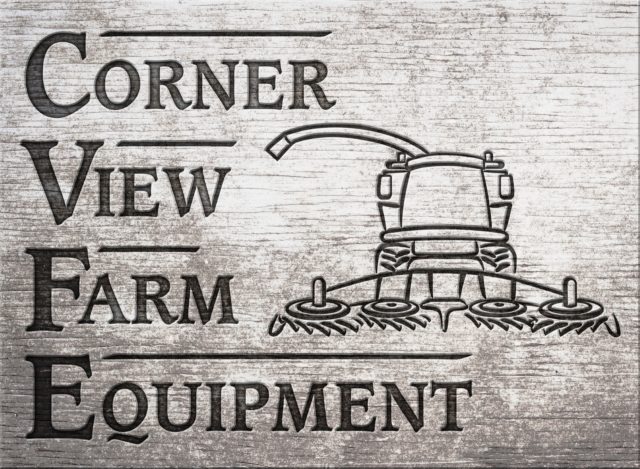Precision agriculture represents a transformative approach to farming, leveraging advanced technologies to optimize agricultural productivity, enhance resource efficiency and promote sustainable practices. As an organization dedicated to the development of industrial control system (ICS) standards and education, the International Society of Automation (ISA) recognizes the critical role that robust ICS frameworks play in advancing precision agriculture. This article highlights the importance of establishing comprehensive ICS standards and enhancing educational initiatives to support the widespread adoption and effective implementation of precision agriculture technologies. In addition, the article stresses sustainable agriculture practices to balance environmental health, economic profitability and social equity.
The state of precision agriculture
Many governments support the development of precision agriculture technology and sustainable farming practices. Examples include Australia’s Department of Agriculture, Fisheries and Forestry; Canada’s Agriculture and Agri-Food Canada (AAFC) program; the U.S. Department of Agriculture’s Agriculture Innovation Agenda (AIA); and the European Union’s Common Agricultural Policy (CAP). Also, in the U.S., the National Institute of Food and Agriculture funds research projects in smart agriculture. Despite this support in some countries, however, the U.S. Government Accountability Office (GAO) has stated, “While precision agriculture technologies, such as variable-rate fertilizer applications and yield monitoring, have been available since the 1990s, only 27 percent of U.S. farms or ranches used precision agriculture practices to manage crops or livestock, based on 2023 U.S. Department of Agriculture (USDA) reporting.”
The role of industrial control systems in precision agriculture
Precision agriculture relies heavily on the integration of various technologies, including GPS, sensors, data analytics and automation. Industrial control systems serve as the backbone of these technologies, enabling seamless communication, real-time monitoring and precise control of agricultural operations.
The key components of ICS in precision agriculture include:
- Sensors and actuators: These measurement and control devices collect data on soil conditions, weather, crop health and machinery performance, providing critical inputs for decision-making processes that in turn result in actions, such as changes in irrigation settings, climate control or movement of planting, harvesting or spraying machinery.
- Data management systems: These centralized platforms aggregate and analyze data, offering actionable insights to farmers for optimizing planting, irrigation, fertilization, application of pesticides and harvesting. Such systems can greatly reduce workload for those required to complete regulatory reports.
- Automation and control systems: These systems enable the automation of various farming tasks, reducing labor costs, enhancing precision on usage of fertilizers and pesticides, improving overall efficiency and minimizing impact to people and environment.
The need for standardization
The rapid proliferation of precision agriculture technologies has led to a fragmented landscape of proprietary systems and solutions – with a notable lack of standards, as referenced in the previously cited U.S. GAO report. This lack of standardization poses significant challenges, including interoperability issues, data compatibility concerns, maintenance challenges and increased costs for farmers. It also creates safety and environmental risks. Establishing comprehensive ICS standards is essential to address these challenges and unlock the full potential of precision agriculture in several key areas:
- Interoperability: Developing common communication protocols and data formats to ensure seamless integration of diverse technologies and systems.
- Security: Implementing robust security standards to protect sensitive agricultural data and safeguard against potential threats.
- Scalability: Creating scalable solutions that can be adapted to various farm sizes and types, from small family-owned farms to large commercial enterprises.
- Sustainability: Promoting sustainable practices through standards that prioritize resource efficiency and safety and environmental stewardship.
Enhancing education and training
Realizing the full benefits of precision agriculture will require investing in education and training programs to equip farmers, agronomists and agricultural technicians with necessary skills and knowledge. To this end, ISA advocates the following educational initiatives:
- Curriculum development: Collaborating with academic and technical training organizations to develop specialized curricula that cover the principles of ICS, data analytics and precision farming techniques as well as sustainable farming concepts.
- Professional development: Offering workshops, seminars and certification programs to provide ongoing training and upskilling opportunities for agricultural professionals.
- Public awareness campaigns: Launching awareness campaigns to educate the broader farming community about the advantages of precision agriculture and the importance of ICS standards.
- Research and innovation: Supporting research initiatives that explore new applications of ICS in agriculture and drive innovation in the field.
The integration of industrial control systems is pivotal to the success of precision agriculture. By establishing comprehensive standards and enhancing educational initiatives, we can ensure that precision agriculture technologies are accessible, secure and effective. ISA is committed to leading these efforts, fostering collaboration among stakeholders and promoting the widespread adoption of precision agriculture practices and sustainability concepts. Industry leaders, policymakers, academic institutions, sustainability champions and the agricultural community are called to join us in this mission. By working together, we can develop the necessary standards, provide valuable education and training, and drive the advancement of precision agriculture for the benefit of farmers and society as a whole.
Steve Mustard is an independent automation consultant and a subject matter expert of the International Society of Automation (ISA). Backed by more than 30 years of engineering experience, Mustard specializes in real-time embedded equipment and automation systems. He serves as president of National Automation Inc. and served as the 2021 president of ISA.
Reprinted with permission from the International Society of Automation.








